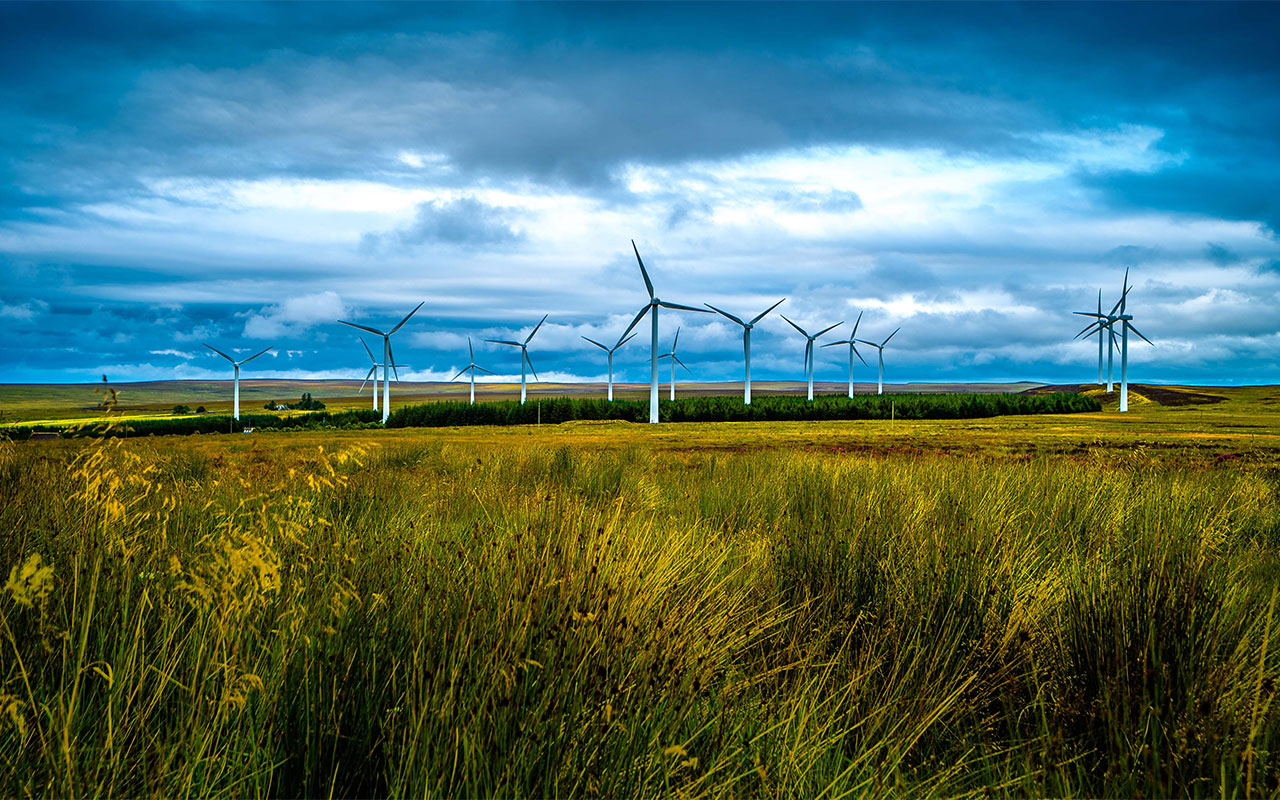There are now more reasons than ever to focus on sustainability

CLIMATE change is an issue that’s been climbing up the agenda for years now, but with Glasgow preparing to host the COP26 summit later this year, environmentalism and sustainability are likely to have a higher profile than ever.
In the drinks industry, the need to become more environmentally-friendly has led to a number of major investments and initiatives in recent years as producers look to reduce their carbon footprint.
The subject is said to have become much more important to the general public as well.
“The impact of climate change is becoming tangible, so the desire to help prevent further damage, even in little ways, is now a serious influence on how people go about their daily lives,” said Annabel Thomas, founder of Nc’nean Distillery, which claims to be a 100% renewable energy facility.
“In our recent consumer survey, 65% of respondents said they actively seek out sustainable/eco-conscious brands.”
Sarah Lyons, the newly-appointed environment manager at Dunnet Bay Distillers – another Scottish producer which incorporates sustainable practices in its operation – said sustainability may not be important to every single consumer, “but it is important to well over half”, and so businesses are increasingly targeting this growing section of the public.
“However, there is a more important reason for drinks companies to be sustainable,” said Lyons.
“That is because it’s simply the right thing to do.”
Whether through environmental concerns, cost-cutting or to appeal to what is a growing section of the public, there are arguably now more reasons than ever for bar, pub and restaurant operators to adopt sustainable business practices.
Niall Macalister Hall, chief executive of Beinn an Tuirc Distillers, which produces its Kintyre Gin using hydro-electric power, said: “Simply put; sustainability sells.
“The taste and quality of a product is no longer enough to get a customer on board. Consumers want products and brands that align with their own values and are buying from brands and operators based on their social and environmental impact.
“Bar and pub operators are often the first touchpoint consumers have to a brand, and it can only be a positive to be a part of the responsible revolution.
“As consumers continue to embrace social causes and willingly pay extra for environmentally friendly products, it presents a great opportunity for operators to drive sales.
“Mass movements, social media campaigns and high-profile influencers continue to have a profound effect on the consumer psyche and choosing the right products to stock in bars will be remembered.”
The range of products stocked by an outlet is just one way operators can address sustainability.
Drinks companies and environmental groups said there are a number of other steps licensees can take to help cut their venues’ carbon footprint.
“Taking steps to be more environmentally-friendly can include starting with small changes to your pub or bar – these things can have a big impact,” said John Gemmell, on-trade category and commercial strategy director at Heineken UK, which recently launched sustainable cider brand Inch’s.
“Scrapping straws and limiting disposable coasters, recycling ‘waste products’ as cocktail ingredients and limiting the amount of ice used in drinks will all play their part in making your venue more eco-friendly.
“Bigger changes include going paperless, using local produce and investing in more sustainable and energy-efficient dispense systems.”
Energy is another area where operators can make a big difference to their outlets’ carbon footprint.
Gerry Boyle, sector manager for hospitality at Zero Waste Scotland, advised business owners to consider replacing inefficient boilers and single glazed windows as well as reviewing heating timers.
Lighting, too, should be considered, with Boyle recommending LED lights as an environmentally-friendly option.
“To save water, businesses could install dual flush toilets, shower flow restrictors, sensor taps and water-efficient dishwashers and washing machines,” he said.
“Encouraging staff and customers to turn taps off when they are not in use is an easy win.”
For food businesses, reducing food waste is another opportunity to cut carbon – as well as costs.
Juliane Caillouette-Noble, managing director of the Sustainable Restaurant Association, said food waste costs the average hospitality business at least £10,000 every year.
“Recycling, as is mandatory in Scotland, is a great first step, but reusing and reducing can result in creative new recipes and a real boost to the bottom line,” she said.
“Food production accounts for almost a third of greenhouse gas emissions and meat and dairy is the biggest contributor.
“So take a look at your menu and look at how you can highlight new tasty, plant-based dishes that could have a carbon footprint half the size of your meat dishes.
“With cheaper ingredients, there are savings to be made too.”
Boyle at Zero Waste Scotland suggested measures such as reducing portion sizes, simplifying menus and providing doggy bags for customers as other steps operators could take to cut wastage.
For those business owners looking to make as many improvements as possible, engagement with suppliers is essential, said Thomas at Nc’nean Distillery.
“Ask them how they can increase use of recycled materials, stock reusable or eco-friendly products, or lower the footprint of their deliveries,” said Thomas. “The more people asking these questions, the more likely substantial changes will be made.”
Ultimately, any changes a business can make are a step in the right direction, said Calum Fraser, UK brand ambassador for William Grant & Sons-owned Discarded Spirits Co.
“Sustainability is a journey, so any change in the right direction is a positive one,” said Fraser.
“You don’t have to label yourself as a ‘sustainable’ venue in order to make a positive impact.”



















